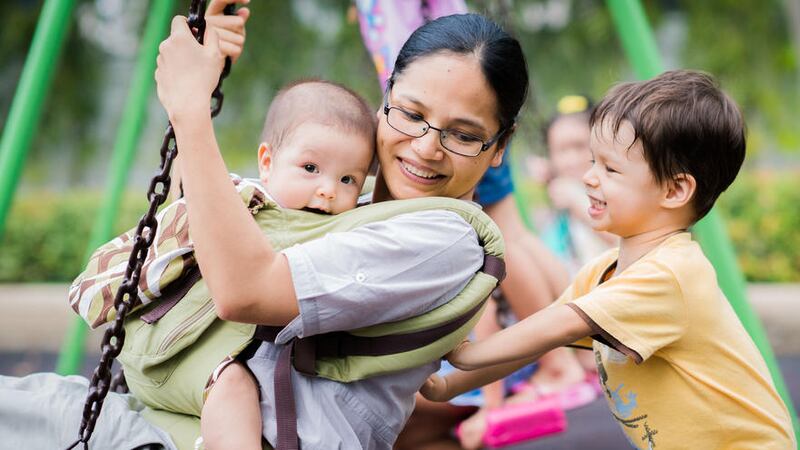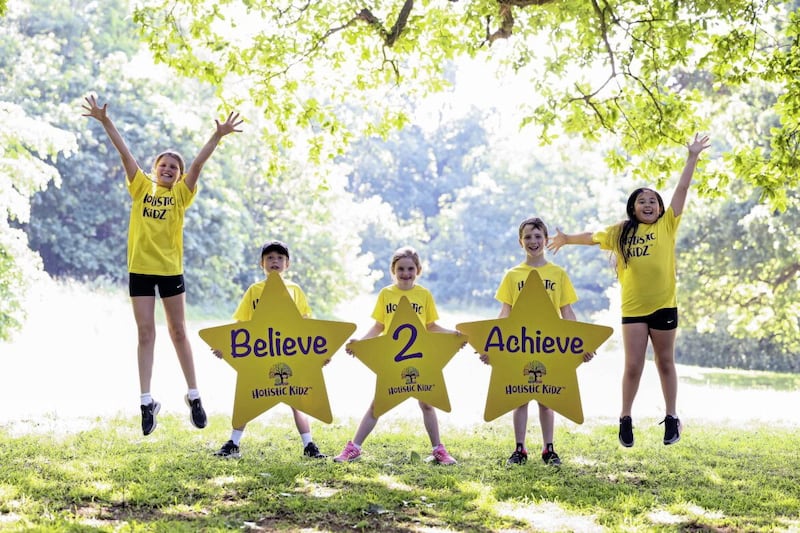ONE of the best things about being a child should be the boundless opportunities to play. But for today's children, those opportunities have been eroded to such an extent that screen time has become a bigger part of their lives than play time.
However, the Save Childhood Movement (SCM) is determined to put the focus back on to the importance of real play, a group of individuals and organisations concerned about the erosion of childhood. The idea is to think about children, and what they need to develop to their full potential.
Despite the fact that play has been recognised by the United Nations as a right of every child – being so vital for their physical, social, cognitive and emotional development – opportunities for play have been significantly eroded over the last generation.
The SCM points out that a variety of factors are responsible for this, including changes in family structure, a more hurried lifestyle, a more risk-averse society and an increased focus on academic attainment.
"Children don't have enough play, and its value isn't recognised," says Wendy Ellyatt, chief executive of the SCM.
"In Scandinavian countries play is seen as fundamentally important for creativity, innovation and inspirational problem solving, yet in the UK we've trivialised play as something you do when you're not working. That's a misunderstanding of what play does for us. Playful thinking is at the core of art and science, and we think that's being lost."
Ellyatt points out that while a generation ago most children played on the streets, now such play is often frowned upon – indeed, Play England research has found 51 per cent of children have been told by adults to stop playing in the streets or in an area near their home. What's more, a Children's Society survey found 43 per cent of adults felt children shouldn't be allowed to play out unsupervised until they were at least 14 years old.
It's not hard to see, then, why many parents take the easy option and let children stay inside playing on a screen, though Ellyatt stresses she doesn't hold parents responsible for today's emphasis on screen time rather than play time – she blames the system that's created a world where parents don't have enough time to be with their children.
"Parents are exhausted, stressed out, working too hard and just don't have enough time," says Ellyatt.
"There are screens that keep children entertained, but the danger is that we're putting younger and younger children in front of them. Children's brains don't develop in the same way if they're sitting in front of screens, because they're not using all their senses. Their brain doesn't develop all the connections it should – it's a diminished experience of the world.
"The best play is when you're physically moving, with social interaction and engagement with the environment. A flat screen is not the kind of environment we were biologically designed for."
Another part of the problem, she says, is that children are being prevented from taking risks. "We've created this concept of a dangerous world which isn't actually statistically proven," she stresses, pointing out that the most dangerous place for a child to be statistically is in their own bedroom on the internet.
"But that's not what parents think – they think of stranger danger and traffic – and there are big notices on green spaces in some areas saying 'no ball games'.
"We haven't created a child-friendly world. Is it the kind of world that creates happy, healthy fulfilled adults? Children's worlds have changed so fast in the digital era, and we need to understand what it's doing to them."
Ellyatt says parents need to better understand what wellbeing is all about and that children are designed to be active and use all their senses.
"We need parents to feel they can argue with councils about things like having more playgrounds and places where ball games are allowed. Parents need to take power for their own family's wellbeing and start making a fuss about things that we all know aren't right."
And as for National Children's Day she simply suggests: "Do something like go to the park or play a board game – go back to good old family values. Technology has its place, but it should be in moderation. Children are designed to be super-active, risk-takers and problem solvers. They have rights and we need to look at what those are and protect them from things that stop them being healthy and happy."








